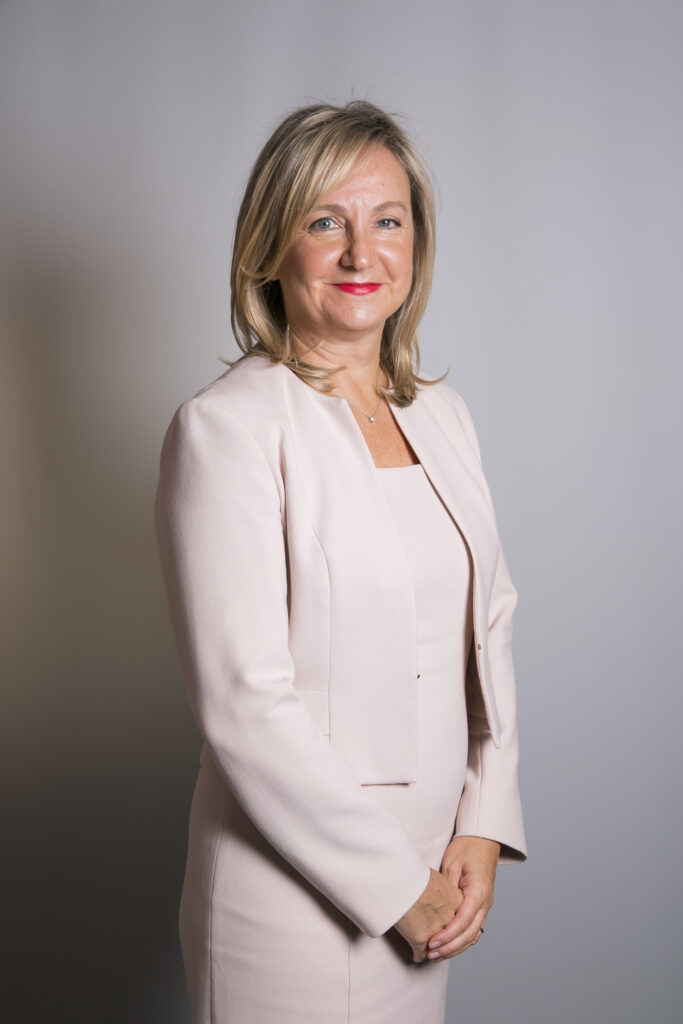Content available in English and Spanish (scroll down)
TTR Dealmaker Q&A with IMAP Albia Capital Director Pablo Gómez

Pablo has a degree in Business Administration and Management from the University of the Basque Country (2013), specializing in Accounting and a Graduate in Business Administration from the Berlin School of Economics and Law (2013).
He began his career in 2014 at Banco Santander in Frankfurt, where he worked as an analyst performing Front Office tasks and in daily contact with banks and institutional investors around the world.
He joined IMAP – Albia Capital in 2015 as an Analyst, where he participated in various jobs such as M&A operations, valuation projects for private companies and strategic reflections.
He has participated in important national and cross-border M&A transactions such as the sale of Comercial Arrate, S.A. to the German group BGH Edelstahl, the sale of Integral Logistics Operators LTK to the Rhenus Logistics group and the sale of ITS Security to Ibermática, among others. In addition, he has also participated in ongoing advice to Bridgestone and several valuation projects.
Pablo is a regular speaker in courses on Financing, among others.
Fluent in German (Goethe C1 Certificate and German selectivity) and English fluently.
TTR: What are the most relevant drivers for consolidating the M&A market in Spain, over the medium and long term?
ALBIA: The key drivers will be industry consolidation and the availability of liquidity.
Spain’s production network consists primarily of SMEs, and this makes it particularly difficult to compete in a fully globalized market. To face a sector’s strategic challenges, it is important to expand in terms of size because this provides access to better financing, talent recruitment, R&D investments and more. Without these levers for growth, it is extremely difficult for businesses to hold their competitive position in the medium and long term.
On the other hand, and as a result of the expansive monetary policies implemented in recent years, there is a great deal of liquidity on the market, leading to strong investor interest on behalf of industrial companies as well as financial investors seeking to lead this sector consolidation.
TTR: As one of the leading M&A financial advisors in the Spanish market, how has IMAP Albia Capital handled the crisis in terms of advising clients and what opportunities has the company identified in the past months through the current situation in the country?
ALBIA: Throughout the crisis, we have sought to remain close to clients, guiding and advising them from a corporate finance perspective in the challenges that have arisen, striving to provide solutions; as well as in the opportunities that have emerged (the other side of the crisis).
We have identified a number of sectors impacted by the crisis in terms of the opportunities for growth for some and the resulting issues for others, and we have been working on them for months in order to add value to each one. In this sense, we have helped companies grow in segments for which the crisis has created opportunities, and spearheaded consolidation and restructuring solutions in other markets where survival is a matter of reorganization, resulting in companies that are more competitive and have a better market position.
TTR: In which sectors might international investors find the biggest opportunities in Spain in 2022? Why?
ALBIA: In Spain, just like in other economies, certain sectors are extremely consolidated and others offer major opportunities for growth. We have identified sectors that have a large number of corporate deals (34% of transactions registered in IMAP between Q1 and Q3 of 2021) and are expected to continue leading investor appetite. These are technology, health and food.
Overall, these sectors have a major R&D&i investment component, new technological solutions, innovative business models and a high level of expected growth, with strong investor interest on behalf of industrial companies and of private equity funds.
On the other hand, Spain has been the focus of international investments in many industries for some time now, and we do not foresee this trend changing in the short term. In our case, over the past three years, approximately 60% of the deals successfully closed have involved international counterparts.
TTR: Regarding corporate restructuring, what are the prospects in Spain?
ALBIA: Due to COVID-19, a series of measures were implemented in Spain with the aim of keeping companies intact, at least during the most challenging times of the crisis: temporary redundancy plans, ICO loans with terms adapted to the actual repayment capacity of most businesses, bankruptcy moratoriums and more.
The consequences of the crisis are expected to appear more forcefully over the course of 2022 in companies exposed to sectors facing difficulties and with an unbalanced structure. This, paired with the end of ICO loan grace periods, seems to indicate that next year there will bea significant rise in the number of restructuring projects compared with 2021.
TTR: What will IMAP Albia Capital main challenges be in terms of M&A deals in Spain during 2022?
ALBIA: Our goal for 2022 is to remain as one of the top M&A advisors for Spain’s middle market, so we will continue to work proactively in certain sectors, identifying businesses for whom we can add value in the area of corporate deals. Although there is still a great deal of uncertainty, overall economic growth is expected for 2021 and 2022. We aim to play a major role in reorganizing the Spanish economy by making our knowledge available to clients so together we can build a larger and more competitive production network that has the potential of attracting and retaining talent, resources to invest, the ability to create value-added jobs, and a good outlook for competing globally.
Spanish version
Pablo es Licenciado en Administración y Dirección de Empresas por la Universidad del País Vasco (2013), especialidad Contabilidad y Graduado en Business Administration por Berlin School of Economics and Law (2013).
Inició su carrera en 2014 en el Banco Santander en Frankfurt, donde trabajaba como analista realizando tareas de Front Office y en contacto diario con bancos e inversores institucionales de todo el mundo
Se incorpora en el año 2015 como Analista a IMAP – Albia Capital, donde participa en diversos trabajos como operaciones de M&A, proyectos de valoración para empresas privadas y reflexiones estratégicas
Ha participado en importantes operaciones de M&A nacionales y transfronterizas como la venta de Comercial Arrate, S.A. al grupo alemán BGH Edelstahl, la venta de Operadores de Logística Integral LTK al grupo Rhenus Logistics y la venta de ITS Security a Ibermática, entre otras. Además, ha participado también en asesoramiento continuo a Bridgestone y distintos proyectos de valoración.
Pablo es ponente habitual en cursos sobre Financiación entre otros.
Domina los idiomas alemán (Certificado Goethe C1 y selectividad alemana) e inglés de forma fluida
TTR:¿Cuáles serán los drivers más relevantes para la consolidación del mercado M&A en el mediano y largo plazo para España?
ALBIA: Los principales drivers serán la consolidación de sectores y la disponibilidad de liquidez.
España cuenta con un tejido productivo compuesto predominantemente en su totalidad por PYMES, lo que supone una importante dificultad a la hora de competir en un mercado ya totalmente globalizado. Ganar dimensión es una cuestión clave para afrontar los retos estratégicos de cada sector ya que permite disponer de acceso a financiación en mejores condiciones, captación y retención de talento, capacidad de inversión en i+D+I, etc. Sin estas palancas de mejora resulta muy difícil mantener la posición competitiva de las compañías a medio y largo plazo.
Por otro lado, como consecuencia de las políticas monetarias expansivas implementadas durante los últimos años, hay mucha liquidez en el mercado y esto resulta en un alto interés inversor tanto de compañías industriales como de inversores financieros buscando liderar esta consolidación sectorial.
TTR: IMAP Albia Capital, al ser uno de los líderes en asesoría financiera en el mercado M&A: ¿Cómo ha manejado la crisis actual en términos de asesoramiento y qué oportunidades han encontrado en los últimos meses a través de la coyuntura actual en España?
ALBIA: Durante esta crisis hemos tratado de estar cerca de nuestros clientes, acompañándolos y asesorándolos desde la perspectiva de las finanzas corporativas en las dificultades que han ido surgiendo y tratando de ofrecer soluciones, así como en las oportunidades que se ha presentado (la otra cara de la crisis)
Por otro lado, hemos identificado una serie de sectores sensibles a la crisis, tanto por la oportunidad de crecimiento que esta representa para unos como por la problemática que ha acarreado para otros y los venimos trabajando desde hace meses con el objetivo de aportar valor a cada uno de ellos. En este sentido, venimos acompañando en procesos de crecimiento en aquellos sectores para los cuales esta crisis ha supuesto una oportunidad, y liderando soluciones de consolidación y restructuración en otros sectores en los que su supervivencia pasa por la reorganización de los mismos, que resultará en compañías más competitivas y con un mejor posicionamiento en el mercado.
TTR: ¿Cuáles serían los sectores que podrían ofrecer las mayores oportunidades en España a los inversores internacionales en 2022 y por qué?
ALBIA: En España, al igual que en otras economías, hay sectores muy consolidados y otros que representan importantes oportunidades de crecimiento. En este sentido, identificamos una serie de sectores donde se vienen registrando un importante número de operaciones corporativas (el 34% de las transacciones registradas en IMAP en el periodo Q1 – Q3 2021) y que se espera sigan liderando el apetito inversor. Estos son: tecnología, salud y alimentación.
Se trata de sectores, en general, con un importante componente de inversión en i+D+I, con nuevas soluciones tecnológicas, modelos de negocio innovadores, y un fuerte crecimiento esperado, en los que existe un importante interés inversor tanto de compañías industriales como de fondos de inversión.
Dicho esto, España está en el foco de inversores internacionales en muchos más sectores desde hace tiempo y no esperamos que esta tendencia vaya a cambiar a corto plazo. En nuestro caso, durante los últimos 3 años, un ~60% de las transacciones cerradas con éxito ha sido con contrapartes internacionales.
TTR: En cuanto a reestructuraciones societarias, ¿cuáles son las perspectivas en España?
ALBIA: Como consecuencia de la Covid-19 se activaron una serie de medidas en España con el objetivo de preservar la continuidad de las compañías, por lo menos durante los momentos más difíciles de la crisis: ERTEs, préstamos ICO, cuyas condiciones se han venido ajustando a la realidad de la capacidad de repago de la mayoría de las empresas, moratoria concursal, etc.
Es previsible que en el 2022 empiecen a aflorar de manera más contundente las consecuencias de la crisis en aquellas empresas con exposición a sectores en dificultades y con una estructura de balance más desequilibrada. Ello unido al final de la carencia de los préstamos ICO hace prever que el próximo año nos encontremos con un aumento considerable de proyectos de restructuración con respecto a las cifras registradas en el 2021.
TTR: ¿Cuáles serán los principales desafíos para IMAP Albia Capital en términos de transacciones de M&A en España para 2022?
ALBIA: De cara al año 2022 queremos seguir siendo uno de los asesores de referencia en M&A en el mercado español del middle market y para ello vamos a continuar trabajando en determinados sectores de forma proactiva e identificando compañías en las que podamos aportar un valor añadido en lo que a operaciones corporativas se refiere. Seguimos en un entorno de incertidumbre, si bien durante el 2021 y 2022 de crecimiento, y queremos jugar un papel relevante en la reordenación y reorganización de la economía española, poniendo nuestro conocimiento al servicio de nuestros clientes para que entre todos seamos capaces de construir un tejido productivo más competitivo, de mayor dimensión, con potencial de atraer y retener talento, con recursos para invertir, con capacidad de generar empleo de valor añadido y con buenas perspectivas de competir a nivel global.








